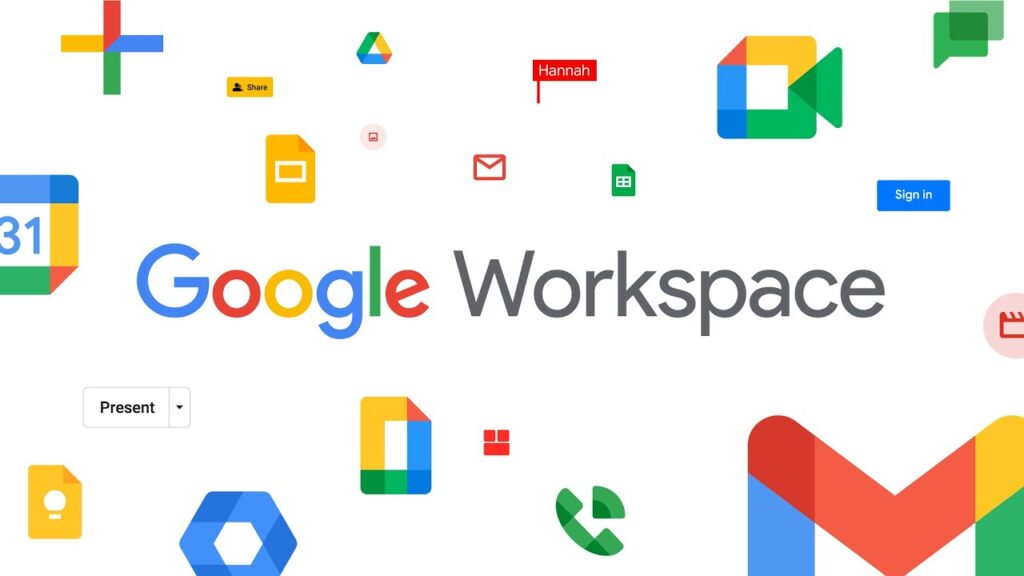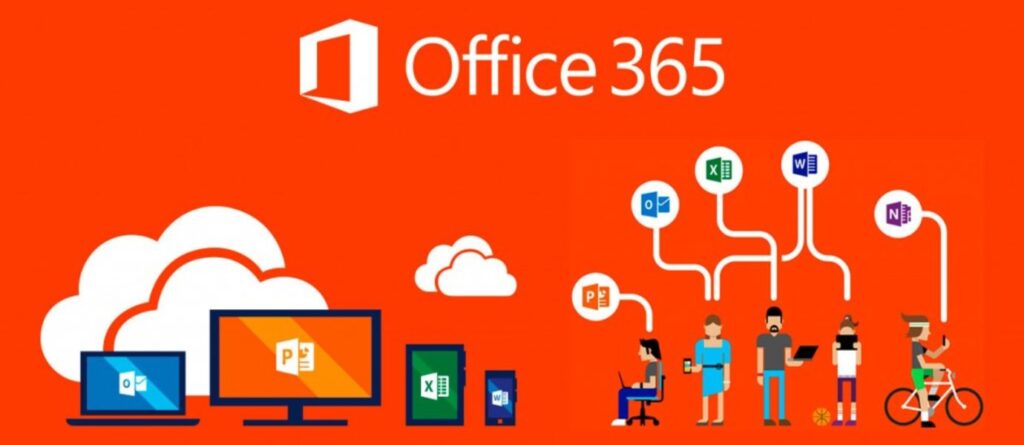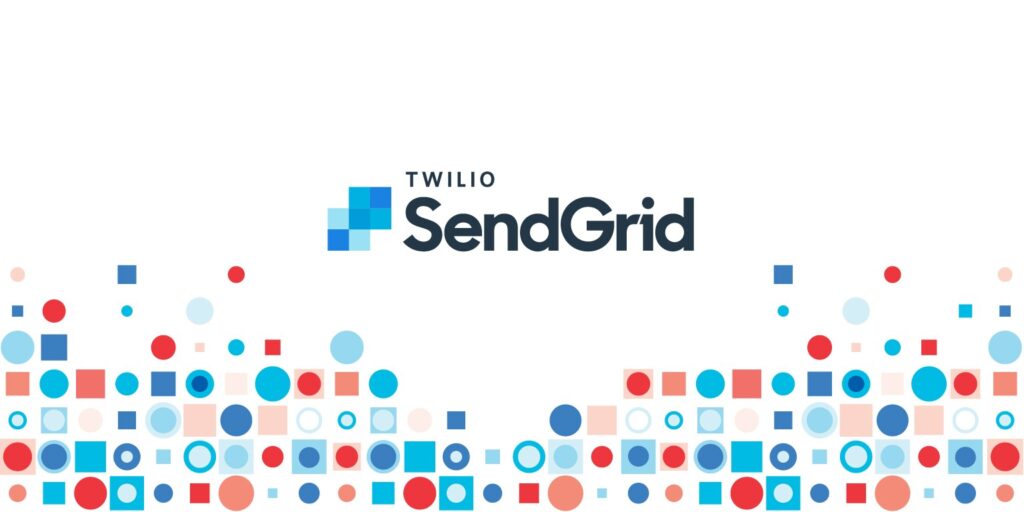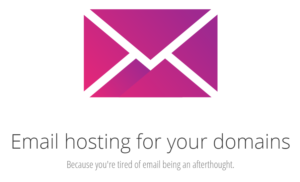
TOP 10 email services for business
Small businesses do not want to spend a lot of money on email hosting. They don’t require thousands of email addresses and they don’t want hundreds of dollars hosting their email.
What is Email Hosting? Why use it?
An email hosting company is responsible for running an email server. Sign up for the email hosting service to get an email server. To use an email service, all you need is a domain. An email hosting server can be used to manage, send and maintain your email accounts. Many large e-commerce sites have their own email servers that ensure that emails get to the intended recipients promptly. Small businesses can use the email hosting solutions offered by companies such as Google, Zoho, and Rackspace. Cloudways is one example. It provides managed cloud hosting services and an email hosting solution from Rackspace.
Email Hosting Options for Small Businesses
There are many types of email hosting options, each with a different purpose. Let’s find out which email hosting solution is best for you.
1. Email Service and Shared Web Hosting
This email service can be used with shared hosting services. Due to limitations on the server, you can’t send/receive bulk emails from it.
2. Third-Party Email Hosting
Third-party email hosting is preferred by most digital businesses. These email servers are highly scalable and easy to use, with excellent support. Remember that email hosting will be charged separately. If you choose to get a shared web hosting with email, your cost will be higher than if you go for a dedicated server.
3. Self-hosted Email Servers
These servers are highly complex and need technical expertise from the people who manage them. These servers are reliable and allow you to send, receive, or maintain email with ease.
Which business email hosting provider is best? Features, prices, and limitations
The following table compares email hosting for small businesses.
Why should you host email on a separate server?
Experts recommend that email not be hosted on the same server as web files and databases of business websites. This is a common mistake. Many businesses view a separate email server to be an unnecessary expense. They host their email on the same server. If disaster strikes and the server is down for whatever reason, the business can’t email the providers as the email system was also offline.
Hosting email is bad from a technical standpoint. Web hosting and email hosting have very different requirements. Hosting them both on the same server can lead to competition for resources, which could result in a slowdown in application performance.
The tricky part of support is last. The support team may be well-versed in handling web hosting issues but their knowledge of troubleshooting email hosting might be limited.
IMAP vs. POP3 vs. SMTP – Comparing Email Protocols
Let’s find out the differences between different email protocols. This is the list of protocols you will need in order to send emails.
1. IMAP
It’s also known as the Internet Access Message Protocol. It is used to retrieve email messages from the server and manage them. It is not possible to use IMAP protocol for email sending. You can instead use it to send email messages and store them on the server.
2. SMTP
The SMTP protocol stands as (Simple Mail Transfer Protocol). It is the industry standard protocol for sending email messages. SMTP lets you send and relay email messages or forward them to other mail clients, such as Microsoft Outlook to Gmail. To send email messages, the SMTP server can be used to complete the transmission.
3. POP3
POP3 allows you to receive email messages and then download them to your server. Although it has the same functionality and features as IMAP protocol, POP3 doesn’t save these emails messages to the server. It downloads them from the server to the user’s PC and deletes the server copy.
IMAP protocol, on the other hand, stores an email message on an email server and syncs it across multiple devices.
Q. Q. Should You Use IMAP or POP3?
It all depends on how you wish to receive emails. Both functionalities are offered by most email service providers. It is best to choose IMAP protocol. Your emails will be saved on the server so you can access them at any time. You won’t have access to any emails if you use POP3 email protocol.
Best Email Hosting Services for Business
This list contains the best email hosting services for small businesses that you can use to increase your email campaigns.
1. Google Workspace

Google Workspace is our first choice. Gmail is a well-known tool. Google Workspace is a more advanced, sophisticated, and feature-rich version Gmail. Google Workspace is a collection of Google cloud-based apps that can simplify many of your tasks. It includes Calendar and Chat, Drive, Docs Sheets Slides Sites, Meet, Google Docs, Drive, Docs, Sheets, and Slides.
With over a billion users, it is one of the most widely used email services. You can also use third-party apps on Google Workspace to improve your productivity without additional charges. Google Workspace isn’t free. You will need to pay a small fee for the use of Google Workspace apps. Prices start at $6 per user per month for the Business Starter plan and can rise to $18 per person per month for Business Plus. Each user receives 30GB of storage space in Google Workspace. This includes Google apps such as Gmail, Drive, and Photos. You can also get a 14-day free trial.
2. Zoho Mail

Zoho mail service offers an alternative to Microsoft Office 365 business email and Google Workspace. It has almost all the same features, including hosted email, office suite and other tools for working. Zoho offers both a paid and free version of its mail service. Basic features like a web-based client that sends and receives emails are available in the free version. The free version does not allow you to set up a business account or get a custom domain. The paid Zoho mail service allows you to easily create a custom domain for your email. It supports email forwarding and POP/IMAP. A third-party app can be used to check your email. Zoho Mail, which starts at $12 per year and offers 5GB of email storage, is a great option for small businesses. Zoho Mail Plus plans offer 30GB storage per user and Zoho Docs cloud storage.
3. Office 365 Outlook

The Microsoft Office Suite 365 service is best for you if you’re a Microsoft user. Office 365 offers all the tools you need, including Outlook, Word Excel, Excel, PowerPoint, and more. The Office 365 Business Premium will be available for your email hosting account. This service can be used with a custom domain. Office 365 Business Premium offers 50GB storage and uses the custom domain to create an email address. The Office 365 Outlook version includes Outlook, Word Excel, PowerPoint, and OneNote. This will allow you to improve your productivity. You will also get 1TB OneDrive cloud storage for your files. Office 365 Outlook is $100 per year
4. Yandex Mail
Yandex, a Russian search engine, also offers email hosting. This is the perfect tool for anyone who wants to set up an email server with a custom domain. It’s fast and flexible, as well as cheaper than other providers. A paid account costs as little as $3 per month. You can have up to three email users for a website. However, you can sign up as an organization and get 1000 free accounts. Yandex provides unlimited storage for all email accounts. Yandex Mail can be connected to your email account. Collaboration tools include track issues, calendar, forms, and messenger. Yandex gives each user 10GB of online storage space for an annual fee. It comes with anti-virus and spam technologies to protect your mailbox. Two-factor authentication (2FA), for better login security and migration, is also available.
5. Mailgun

Mailgun, an SMTP email service provider, was created primarily to serve software developers. Cloudways users love it because they can send bulk emails easily and it dramatically increases engagement.
Mailgun isn’t an email marketing tool, it’s a mail API. It is a transactional service that allows you to send, receive and track emails. You can use it to send burst emails and it uses secure protocols to ensure your email is always safe.
It also includes a performance prediction tool that will give you an indication of where your email is likely landing when it arrives at your recipient’s mailbox.
Mailgun is not free. The Flex tier offers three months of unlimited email. After the initial period expires, you will be charged according to how many emails you send. After the initial three months, $0.8 per 1,000 emails will be charged.
6. SendGrid

SendGrid allows users to send email without having to set up or maintain their own email servers. Cloudways users love it because it handles all technical issues from setting up the infrastructure to scaling your email requirements.
It offers real-time analytics data and reputation monitoring tools. SendGrid has more than 45,000 customers and sent over 1 trillion emails, making it a trusted and reliable choice.
7. MXRoute

MXRoute, a simple, no-frills email hosting solution for small businesses, is a great option. MXRoute is also extremely affordable, at $60 per year or $5 per month for unlimited domains and email addresses. You get a 50GB server for this price.
You can also access it via Webmail, SMTP and POP3 for easy access. It also has built-in support to filter out spam mails. MXRoute gives you access to NextCloud for each email that you send. NextCloud offers file storage, calendars, contact management and project management solutions. It even has photo galleries.
8. PostMark

PostMark is another popular service provider for email. It focuses primarily on transactional emails and doesn’t offer bulk email marketing. This has helped it to build a strong reputation.
PostMark is an easy-to-use email service provider that provides metrics for email performance and tracking. It also has email automation, making it a great tool for small businesses. Pricing starts at $10 per month for PostMark, which is somewhat expensive compared to other providers.
For $10, you get 10,000 emails. Pricing varies depending on how many emails you receive. For example, $1,200 per month for 5,000,000 emails. If you wish, you can even obtain a dedicated IP.
9. FastMail

FastMail, one of the most established email service providers in industry, is a great choice for anyone looking for a premium service at a fraction of the cost of a basic service. Although it supports IMAP/PGP, it doesn’t offer encryption at the end. FastMail offers two-factor authentication and spam filtering to protect your email.
Pricing starts at $3 per month. There is no free version. There are several levels you can choose from.
10. Amazon SES

Amazon SES (Simple Email Service), is an affordable, flexible and cost-effective email service that can be scaled to meet your business’s needs. Amazon is not unfamiliar with cloud-based services and the SES seamlessly integrates into their business.
Amazon SES offers a reputation dashboard to help you track the performance of your email campaigns and to get more spam feedback in order to improve your emails’ performance. It comes with a variety of security options built in, such as the DomainKeys Identified Mail and the Sender Policy Framework that authenticate both the sender and receiver.
Conclusion
We have reached the end of the article. This concludes our article on the best email hosting options for small and medium-sized businesses. Email marketing is now an integral part every digital business. This is the time to invest in email hosting services if you are looking to grow your business. An excellent email hosting service can help you grow, improve support, and reach more customers via new marketing channels.
FAQs to Help You Choose the Best Email Hosting Services
Q1. Should you use a separate server for email hosting?
It depends. It all depends. Cloudways provides email hosting as an optional service. All charges will be deducted directly from your Cloudways account. If your hosting server doesn’t provide email hosting, you will need to use a separate server for sending and receiving mail. Depending on your needs, you can either use Google Workspace (or Microsoft Office 365).
Q2. Which bandwidth server should I get for small business email hosting
You rent space from email servers to send emails. These servers have SMTP and IMAP interfaces. Email hosting servers handle both incoming and outgoing mail. If you send large quantities of emails, bandwidth is not an issue. Cloudways Rackspace is the best choice for you if you send less than 10,000 emails per month.
Q3. Why do I need SMTP and IMAP?
To send and receive email easily, you will need to have SMTP and IMAP protocols installed on your email server. Many email hosting providers, such as Cloudways Rackspace email hosting and Google Workspace email hosting, offer additional features like slides, docs sheets, hangouts, and presentations.
Q4. Which email hosting service is best for small businesses?
There is no one “best” email host. However, there are many popular email hosting services. These include:
- Google Workspace
- Cloudways Rackspace
- Zoho Mail
- Office 365 Outlook
- Mailgun
Q5. Q5. How much should email hosting costs?
Email hosting can be very affordable. When evaluating email hosting providers, be aware that even if the price seems low, you should still look at the features as they could leave out essential features like security and space.
Q6. Why should small businesses have email hosting?
It is a good idea to keep web hosting separate from email hosting. This way, in the event of an unfortunate incident with your web host, your emails would still be accessible. Email hosting is different and one server may not be able cater to all of them.



